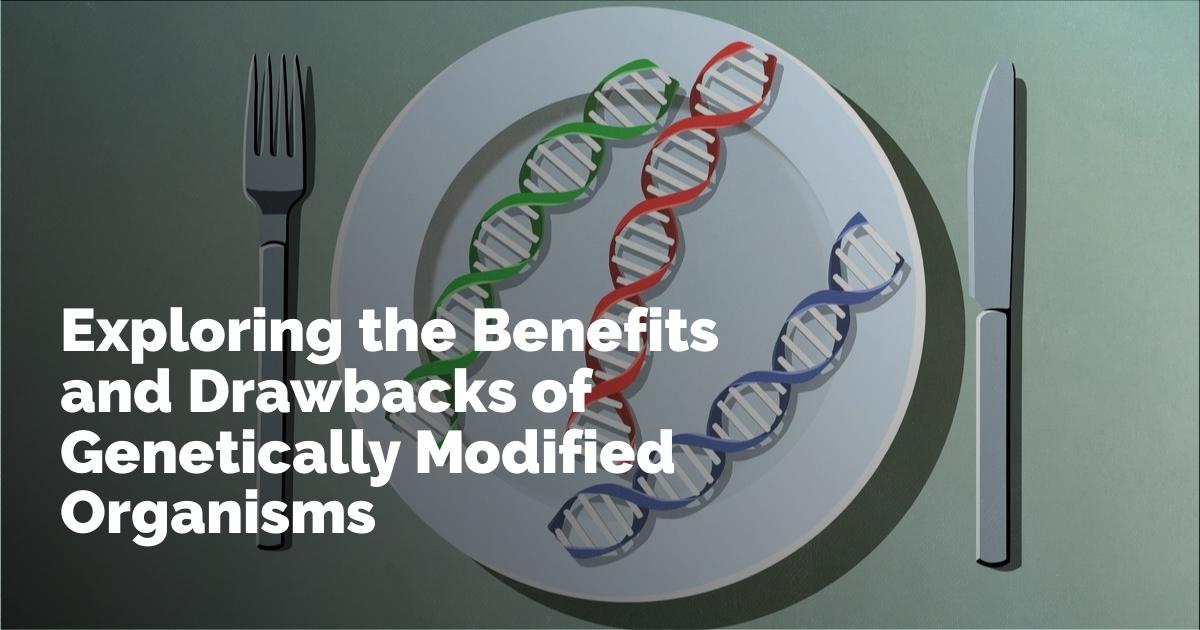The Pros and Cons of GMOs: Navigating the Debate
Genetically modified organisms, commonly referred to as GMOs, have been a subject of intense debate and discourse for many years. These organisms, which have undergone modifications to their genomes through advanced genetic engineering, present both opportunities and challenges in modern agriculture and food production. This article delves into the various aspects of GMOs, shedding light on the pros and cons associated with their use.
The Basics of GMOs
The National Human Genome Research Institute defines a GMO as a "plant, animal or microbe in which one or more changes have been made to the genome, typically using high-tech genetic engineering, in an attempt to alter the characteristics of an organism." This definition encompasses the diverse ways in which GMOs can be utilized to enhance agricultural output and food quality. In the United States, GMO soybeans, cotton, and corn dominate the agricultural landscape, with significant percentages of these crops being genetically modified.
Benefits of GMOs
Reduced Pesticide Usage and Environmental Impact
One of the primary benefits of GMOs lies in their ability to reduce reliance on chemical pesticides. These genetically engineered crops are often resistant to pests, meaning fewer pesticides are needed during cultivation. A study published in 2020 highlighted a reduction of 775.4 million kg (8.3%) in pesticide use due to GM insect-resistant and herbicide-tolerant technologies. This significant decrease not only lowers the environmental impact of agriculture but also mitigates potential health risks associated with pesticide exposure.
Enhanced Nutritional Value
GMOs can also be engineered to offer enhanced nutritional profiles. For instance, Golden Rice, developed in 2004, is renowned for its ability to provide 50% of the recommended daily intake of Vitamin A per cup. This nutrient-rich crop is particularly beneficial in regions plagued by Vitamin A deficiency, such as sub-Saharan Africa. By fortifying crops with essential vitamins and minerals, GMOs have the potential to improve public health outcomes in regions that suffer from malnutrition.
Cost Efficiency in Food Production
GMOs contribute to lowering food costs through improved agricultural efficiency. They facilitate higher crop yields while requiring fewer resources, thus reducing overall production costs. Increased productivity, coupled with cost savings on pesticides and fuels, enables GMO crops to play a vital role in making food more affordable and accessible. This economic benefit is particularly crucial as the global population continues to grow and food demand escalates.
Concerns Associated with GMOs
Potential Allergic Reactions
A prevalent concern regarding GMOs is the possibility of triggering allergic reactions. When DNA from different sources is mixed, there exists a risk of transferring allergens from one food entity to another. For example, if a soybean receives genetic material from a nut, individuals allergic to that particular nut might experience an allergic reaction. Despite this possibility, rigorous testing ensures that GMOs are not inherently more likely to cause allergic reactions than their non-GMO counterparts.
Antibiotic Resistance
Another significant concern is the potential for GMOs to contribute to antibiotic resistance. Certain GM plants have genes that confer antibiotic resistance to distinguish them from non-GM varieties. There is a theoretical risk that these genes could transfer to bacteria within the human gastrointestinal tract, leading to resistant bacterial strains. As global antibiotic resistance becomes an increasingly pressing issue, the potential contribution of GMOs to this problem necessitates careful consideration and ongoing research.
Uncertain Long-Term Health Effects
The long-term health implications of consuming GMOs remain a subject of debate. Some individuals worry that altering the DNA of foods could increase cancer risk or trigger other health issues. However, as of now, there is no substantial evidence linking GMOs to adverse health effects. Organizations such as the American Cancer Society emphasize that genetically engineered products currently on the market are not harmful to human health. Nevertheless, the lack of comprehensive long-term studies raises concerns about potential unknown effects.
The Path Forward
Navigating the complexities of GMOs requires balancing the potential advantages they offer against the concerns and risks they present. As agricultural and scientific advancements continue, it is crucial to engage in informed and constructive discussions about the role of GMOs in global food systems. By fostering transparency in GMO research and focusing on rigorous risk assessment, society can make informed decisions about leveraging these technologies to address pressing global challenges.
The debate surrounding GMOs is likely to persist as new research and developments emerge. Continued scientific inquiry, coupled with public engagement and policy considerations, will be essential to navigating the future of GMOs in a way that maximizes benefits while minimizing potential harms. Through a balanced and informed approach, GMOs can contribute to a sustainable and food-secure future.
출처 : Original Source

